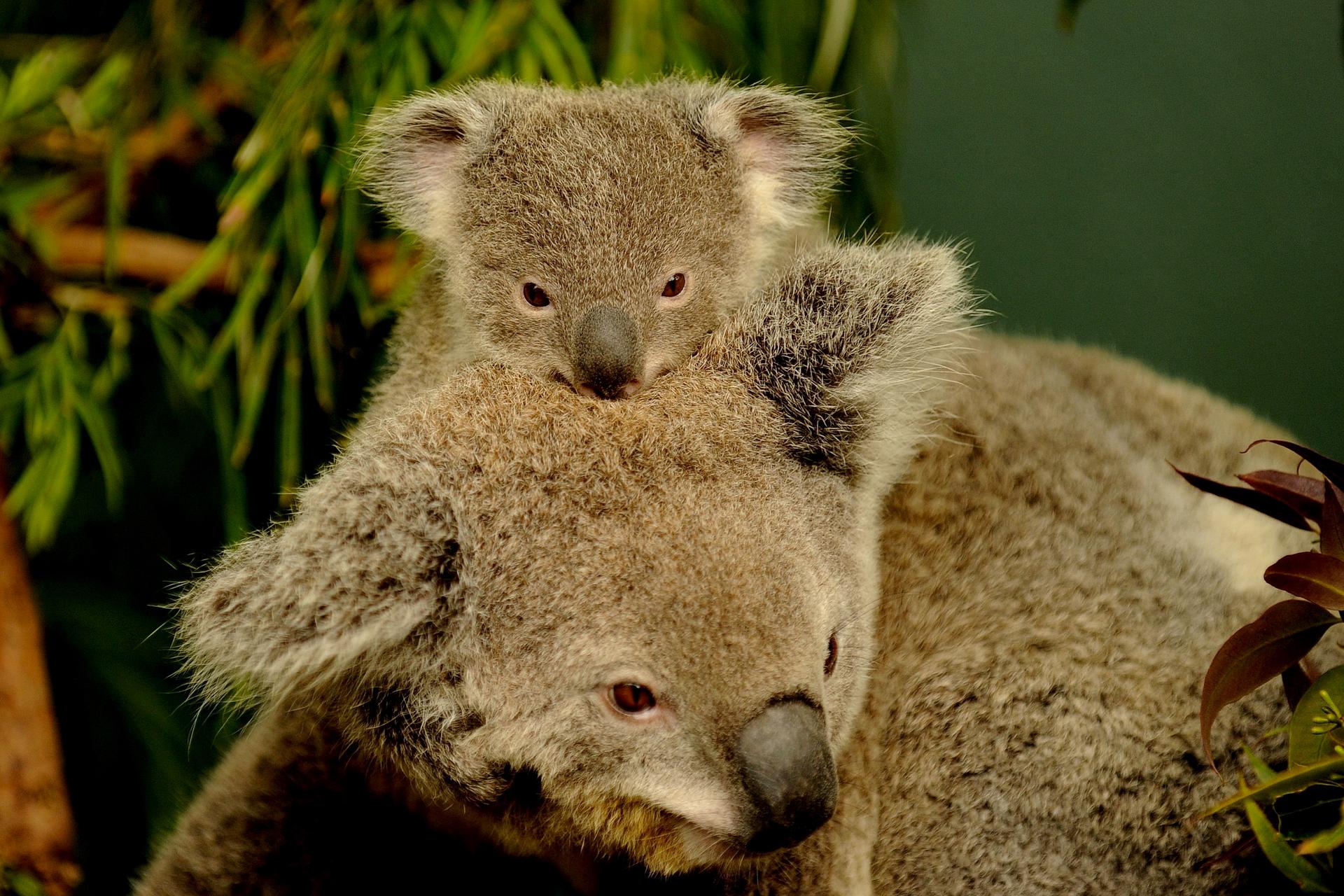Aussie obstetrician sparks debate Down Under by labeling older moms as “selfish”
Sydney Wildlife World’s new baby joey koala, Boonda, clings to its mother Elle on June 28, 2011.
It's a comment that, in a country without a notable alternatives for working women who want children — went down like a lead balloon.
Dr. Barry Walters, an obstetrician at Perth's King Edward Memorial Hospital, told a West Australian paper that women who delayed pregnancy until after their late 30s were "selfish" and "self-centered."
Walters' justification — for those who cared to hear it, and among Australia's increasing number of older moms that wasn't many — was that parents were unfairly leaving their offspring to deal with geriatric parents early in life.
Walters told the West Australian that the number of older expectant mothers had reached epidemic proportions. He stressed that his major concern was that older women had a higher risk of medical complications during pregnancy including higher blood pressure, diabetes, heart disease and kidney trouble.
In an interview with the paper, he reportedly said:
"I see many, many women with diabetes, high blood pressure and all sorts of medical problems and, of course, the older the woman is, the more likely she's got medical problems…
"There are far more women over the age of 38 getting pregnant than there ever were 10, 20 years ago.
"The medical side is only part of it. It is selfish and self-centered of older women to have babies because they are not just babies — they are babies for a little while and they become people."
Stop right there, said one commentator on breakfast TV who professed to having given birth to her last child after the age of 38 and called the comment "patronizing," as older women were by her reckoning far more capable of understanding that babies grow up.
Fair point.
Walters defended his comments by elaborating on them in an interview with the Australian Broadcasting Corporation (ABC):
"The selfishness side of it is a small aspect but I think that when women are over 40, yes they're having a baby who's a baby for a little time but that child will grow into a person in their 20s and 30s who will have, if the parents are still alive, elderly and potentially unwell parents.
"That's the point I was making [in the paper] that was sort of stressed by the paper but it wasn't the main point I was making."
Fair point.
But many commentators wondered whether Walters was being realistic in suggesting women should have kids younger or not at all.
Birth statistics over the past 20 years show many more Australian women delaying parenthood till the 30s and beyond. According to Australian Institute of Health and Welfare statistics, 21.4 percent of women giving birth in 2006 were 35 years of age or older, up from 15 percent in 1997, MSN NZ reports.
And according to the Baby Center website frequented by expectant Aussie moms:
In 2005, more babies were born to women aged between 30 and 35 than to any other age group. Also confirming the trend to delay motherhood, the median age of new mums is now nearly 31-years-old, up from 27 in 1985.
The ABC, meanwhile, spoke to Catherine McMahon, a university lecturer specializing in "the psychosocial wellbeing of women during pregnancy and early parenthood," who also said something quite hard to argue with:
"It takes two, mostly, to make a baby and most older mothers have older male partners and they're part of the decision."
McMahon joined a chorus of women complaining on the airwaves Tuesday that one of the main reasons Aussie women delayed having kids was the problem of finding a committed partner who was willing to have a baby with them.
Fair point, indeed, and one not lost on those calling into talkback radio throughout the day with stories of long relationships ended by men trading them in for a newer model.
Taking her argument back to the high ground, McMahon said that regardless of statistical risks, there needed to be "a more balanced response to older women having babies."
Besides, she said, studies showed that older women "were more psychologically prepared for pregnancy, able to deal with the stress of parenthood and were less likely to experience depression compared to younger mothers."
"I think it's really important to not stigmatize and label older mothers, certainly in our very large sample we found no evidence that the older mothers were having more problematic adjustment."
Meanwhile, Walters — apparently forgoing a constructive approach to the issue of delayed pregnancy — threw fuel on the fire by describing "older women, more obese women, more unfit women, women with medical problems" as "bloody hard work" and the type who "don't do so well in pregnancy."
Walters sagely advised women to have their children by the time they were 37 and to have a medical check-up and be a healthy weight before they fell pregnant.
Perhaps unsurprisingly, King Edward Memorial Hospital distanced itself from his comments with a statement that said that his opinions were just that —his — and not those of the hospital.
The story you just read is accessible and free to all because thousands of listeners and readers contribute to our nonprofit newsroom. We go deep to bring you the human-centered international reporting that you know you can trust. To do this work and to do it well, we rely on the support of our listeners. If you appreciated our coverage this year, if there was a story that made you pause or a song that moved you, would you consider making a gift to sustain our work through 2024 and beyond?
